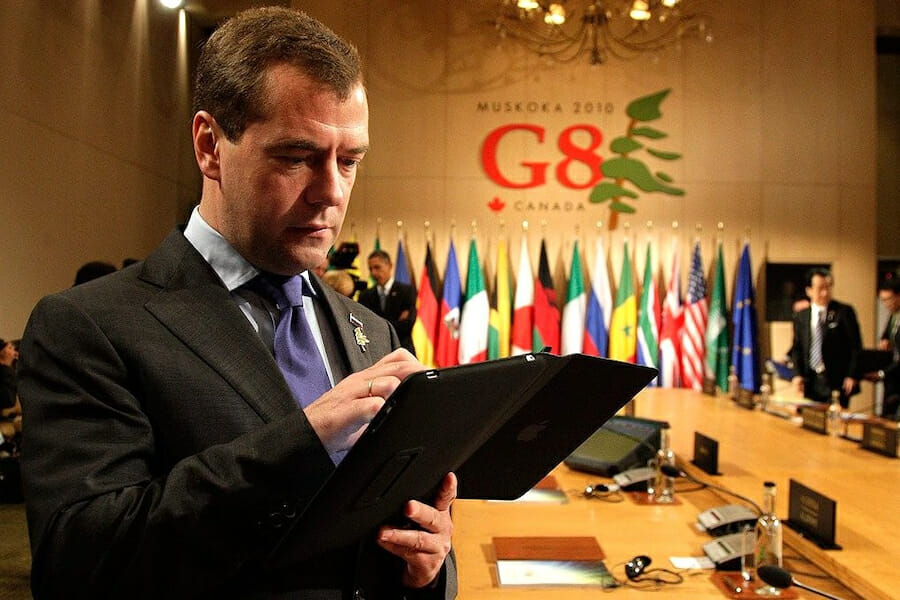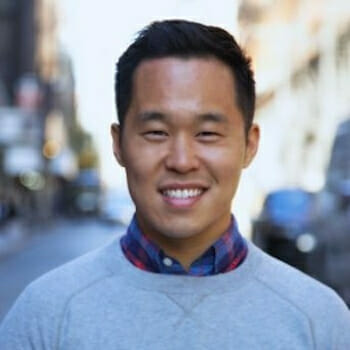
Medvedev’s Second Go at Modernization
Having served his four-year tenure as President pushing his trademark government initiative of modernizing the Russian economy and government, Prime Minister and newly appointed leader of the dominant United Russia Party, Dmitry Medvedev, now has his sights on modernizing his party. While United Russia still remains the single dominant political force within Russia, up against often quarreling and fractious opposition groups, United Russia has seen its polls slipping in the past year. After the December 2011 Duma elections, where the party received a shellacking by the electorate, losing its supermajority within the Parliament, the Russian public have taken to the streets in protest of fraudulent elections and the return of strongman Vladimir Putin to the Kremlin.
And while President Putin has forfeited his party membership, considering himself and his post above partisan politics, it appears the job of re-branding United Russia as a viable political party and not a mere extension of the Kremlin has fallen into the lap of Medvedev. On Friday, just a day before the party’s convention, Medvedev rolled out what he described as an “unprecedented” reform program that would democratize the ailing party and overhaul the way its leadership was chosen.
Calling for an increase in competition of ideas and individuals within the party and promoting leadership from cadres below, Medvedev tapped into the growing populist demands for a more transparent and liberal political process. “The Party should be more open, more clear to the people, it should be perceived as its own entity, not as one appointed from above,” said Medvedev at the meeting, as he unveiled seven major intraparty reform ideas.
A major portion of the reforms called for direct elections through secret ballot votes of the party secretaries and legislative leadership posts on all levels. Further election procedure reforms called for the introduction of a primary process for party candidates who wish to run for mayoral and gubernatorial races on the United Russia ticket. Perhaps, the most drastic of reforms was the call to strengthen local and grassroots organizations, assuring them at least one-fifth of the seats in the party’s ruling General Council. And finally, Medvedev suggested increasing term length of nearly every party leader to five years; as it stands many hold their offices for two to three years.
United Russia party participants of the discussion seemed more or less welcoming to the changes introduced by their new leader. Though a few party notables did voice their doubt and opposition for a few of the Prime Minister’s suggestions. Irina Yarovaya, a representative of one of three pseudo-caucuses within the party called the Patriotic Platform, spoke out against Medvedev’s primary system, saying that it did not extend far enough. According to Yarovaya, a primary election system should also be in place for all secretariat positions of party organizations, an idea her colleague Andrey Isaev of the Social Platform agreed with.
Meanwhile, others did not warm to the idea of secret ballot election of party secretaries. First Deputy of the State Duma, Oleg Morozov, suggested that the party leadership still be given the ability to set forth to the conference the candidates for secretaries. Other members of the party demanded more drastic democratic changes. Anton Khashik of the Kurganskiy Oblast likened the Prime Minister’s efforts as simply tuning a car but failing to replace the entire engine. Khashik suggested that direct elections should be extended to not only participants of the party conference but to every member of the party when deciding the secretaries of their respective regional divisions.
And if the goals of Medvedev’s reform are to change a byzantine party structure that stifles new leadership and public participation, many of its party members seem to have missed this purpose. Even amidst the Prime Minister’s near contemplative self-criticism of the current internal dangers of an out-of-touch United Russia, many of its members have continued to look outside the party to point to its greatest threat.
Despite the creation of the three internal party platforms to encourage the diversity of opinions, many of the United Russia party members seem to value the importance of party cohesion, no matter what its cost to party democratization, in order to battle outside threats.
After Medvedev outlined his reform proposal and exited from Friday’s discussions, the remaining party leaders discussed amongst themselves about the move toward democratizing their party. They emphasized the importance of having the three internal party platforms but stressed that in the end, they were a unified party based on conservative ideology. And despite differences on how to reform the party, the top priority would remain in power. According to State Duma Deputy of the All-Russia People’s Front Valeriy Trapezenikov, despite varied opinions, they would need to reach one opinion in order to “unite and dampen Navalny, Yashin, and all other enemies of our party.”
And so, though Medvedev is now the official head of the United Russia Party and his party modernization proposal has been approved, it remains yet to be seen whether its current leadership and members will truly embrace the oft-painful decentralization of its internal structure suggested by the new Prime Minister. After years of ruling the country as the political arm of the Kremlin and under a non-ideological banner, it may prove difficult or perhaps even impossible for the party to embrace political diversification and simultaneously remain untied under an official conservative ideology.
